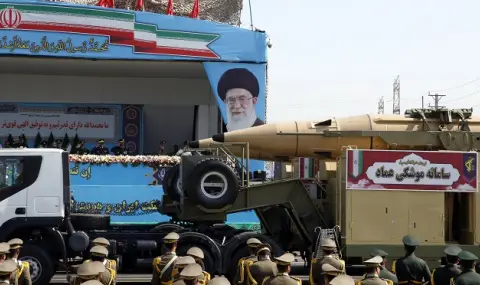In the event of an Israeli airstrike against Iranian embassy in Syria last week, three IRGC-QF generals and four other Iranian military officers were killed. Iran is expected to retaliate in the coming days or weeks. Supreme Leader Ayatollah Khamenei vowed that Israel "will be punished" and "regrets this crime", while President Ebrahim Raisi said the attack "will not go unanswered". Fears are high that this could escalate the war between Israel and Hamas into a wider regional conflict and potentially even a direct confrontation between Iran and Israel. While Moscow arguably stands to gain from the chaos in the Middle East — by diverting Western attention and resources from Ukraine — it stands to lose a lot if the Israel-Hamas conflict escalates into a wider war, Michelle Gries, senior political researcher at RAND.
Russia has spent the past decade consolidating its influence in the region, often taking advantage of localized conflicts. This was most evident in Libya, where Russia used the country's civil war to establish a foothold, and in Syria, where Russian intervention saved the Assad regime from imminent demise in 2015. Russia has since expanded its footprint in Syria, establishing permanent military presence - bases in Tartus and Khmeimim. After the US withdrawal from Syria in 2019, Russia stepped into the void, helping Syrian government forces regain control of the country's northeast. That same year, Russia held joint naval exercises with Egypt; the construction of a Russian-built nuclear plant in Egypt earlier this year demonstrates the continued growth of ties between the two countries.
Although Russia has benefited from the instability in Syria and Libya to establish itself as a guarantor of regional security, it is in no position to reap similar benefits if the Israel-Hamas war escalates. In part, this reflects Russia's concern about its invasion of Ukraine. Last October, distracted by the war, Russia failed to intervene on behalf of former ally Armenia when Azerbaijani military forces seized the ethnically Armenian enclave of Nagorno-Karabakh. This suggests that Russia currently lacks the capacity to act as a stabilizing force in the post-Soviet sphere, let alone the Middle East.
Other signs suggest that Russia's influence in the Middle East may be waning. Developments in Russia-Iran relations may hold clues to Russia's future status in the region. Since the start of the invasion two years ago, Russia has deepened its partnership with Iran, pursuing greater defense and economic cooperation since the invasion of Ukraine two years ago. Russia has found an important military supplier in Iran, which has provided Moscow with unmanned aerial systems, ballistic missiles and fighter jets. Closer relations with Iran have also improved Russia's ability to withstand international sanctions.
Moscow's growing friendship with Tehran may signal that Russian influence in the Middle East remains strong. However, it may also signal the opposite: Russia may realize that its future role in the region will depend on the favor of an increasingly capable Iran. For Moscow to achieve its long-term strategic goals in the Middle East, it must cultivate a close working relationship with Tehran.
The escalation of the current conflict in the Middle East could cause new tensions. A broader regional conflict, especially if it involved a direct conflict between Israel and Iran, would limit Iran's ability to continue serving as a military supplier to Russia. Tehran may ask for more support when Russia has limited capacity to provide it.
Also worrying for Russia: A wider conflict in the Middle East could give China an opportunity to serve as a mediator, as it did in the détente talks between Saudi Arabia and Iran in March 2023. The war in Ukraine has already contributed to the growing dependence of Russia on China. Russia would be particularly sensitive to China's attempts to encroach on its influence in the Middle East.
For now, Russia appears to be following the expected pattern: it has condemned Israel for violating Syria's sovereignty and deployed more forces to the Syrian-controlled area of the Golan Heights. Whether we will see a significant escalation in the coming days and whether Russia will be able to manage the attendant risks remains to be seen.
